
Sir Richard Starkey, known professionally as Ringo Starr, is an English musician, singer, songwriter and actor who achieved international fame as the drummer for the Beatles. Starr occasionally sang lead vocals with the group, usually for one song on each album, including "Yellow Submarine" and "With a Little Help from My Friends". He also wrote and sang the Beatles songs "Don't Pass Me By" and "Octopus's Garden", and is credited as a co-writer of four others.
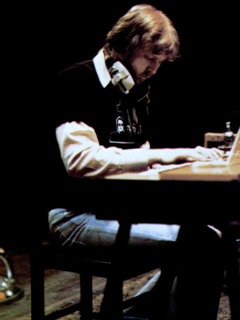
Harry Edward Nilsson III, sometimes credited as Nilsson, was an American singer-songwriter who reached the peak of his commercial success in the early 1970s. His work is characterized by pioneering vocal overdub experiments, returns to the Great American Songbook, and fusions of Caribbean sounds. A tenor with a 3+1⁄2 octave range, Nilsson was one of the few major pop-rock recording artists to achieve significant commercial success without ever performing major public concerts or undertaking regular tours.
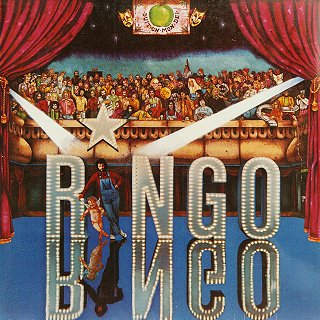
Ringo is the third studio album by English musician Ringo Starr, released in 1973 on Apple Records. It peaked at No. 7 on the UK Albums Chart and No. 2 on the Billboard 200, and has been certified platinum by the RIAA. In Canada, it reached No. 1 on the RPM national albums chart.
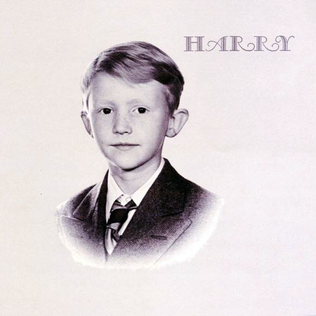
Harry is the fourth studio album by Harry Nilsson, released August 1969 on RCA. It was his first album to get onto Billboard Magazine's Billboard 200 chart, remaining there for 15 weeks and reaching #120.

Aerial Pandemonium Ballet is a 1971 album by Harry Nilsson, and one of the first-ever remix albums, years before they became commonplace in the late 1970s and 1980s onwards.

Duit on Mon Dei is the eleventh album by Harry Nilsson. The original title for this album was God's Greatest Hits but RCA didn't approve. The title is a punning spelling of "Do It On Monday," playing on the British Monarchy's motto Dieu et mon droit. The pun was originally used on the cover of Ringo Starr's 1973 album Ringo.

Flash Harry is the fifteenth studio album by Harry Nilsson. Originally the album was not given a worldwide release and was only issued in the U.K., Japan, Germany, France, Spain, The Netherlands, Australia, and Scandinavia. It was not issued in the United States until August 2013. Upon release it received little promotion from Mercury, with no proper single from the album.

River of No Return is a 1954 American Western film directed by Otto Preminger and starring Robert Mitchum and Marilyn Monroe. The screenplay by Frank Fenton is based on a story by Louis Lantz, who borrowed his premise from the 1948 Italian film Bicycle Thieves. The picture was shot on location in the Canadian Rockies in Technicolor and CinemaScope and released by 20th Century Fox.
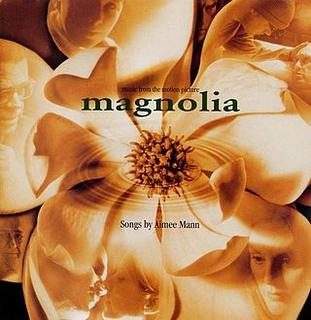
Magnolia: Music from the Motion Picture is the soundtrack album to the 1999 film Magnolia by Paul Thomas Anderson. Largely composed of songs by Aimee Mann, it also features tracks by Gabrielle, Supertramp and Jon Brion. The album received positive reviews and was certified gold in 2001.

Goodnight Vienna is the fourth studio album by Ringo Starr. It was recorded in the summer of 1974 in Los Angeles, and released later that year. Goodnight Vienna followed the commercially successful predecessor Ringo, and Starr used many of the same players, including Billy Preston, Klaus Voormann, Robbie Robertson, Harry Nilsson, and producer Richard Perry. The title is a Liverpool slang phrase meaning "it's all over".

Skidoo is a 1968 American comedy film directed by Otto Preminger, starring Jackie Gleason, Carol Channing, Frankie Avalon, Fred Clark, Michael Constantine, Frank Gorshin, John Phillip Law, Peter Lawford, Burgess Meredith, George Raft, Cesar Romero, Mickey Rooney and Groucho Marx playing "God". It was written by Doran William Cannon and released by Paramount Pictures on December 19, 1968. The screenplay satirizes late-1960s counterculture lifestyle and its creature comforts, technology, anti-technology, hippies, free love and then-topical use of the drug LSD.

Broken Blossom is the fourth studio album by American singer Bette Midler, her second album release in 1977 and her fifth on the Atlantic Records label. Just as Midler's three previous studio albums Broken Blossom includes songs from a wide variety of genres, ranging from Edith Piaf's signature tune "La vie en rose", Phil Spector-esque covers of Billy Joel's "Say Goodbye to Hollywood" and Harry Nilsson's "Paradise" and hard rock like Sammy Hagar's "Red", to a jazzy duet with Tom Waits, "I Never Talk to Strangers", and a rendition of "A Dream Is a Wish Your Heart Makes", originally from Walt Disney's 1950 film version of Cinderella. The album reached #51 on Billboard's album chart.
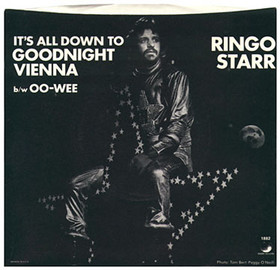
"(It's All Down to) Goodnight Vienna" is a song written by John Lennon, and released by Ringo Starr as the opening title track to his 1974 album Goodnight Vienna. A brief reprise closes the album. Released as the third single, this version is a medley combination of the two. The single was released in the US on 2 June 1975.
George Aliceson Tipton was an American composer, musical arranger, and conductor, who is well known for his work in television and for his collaborations with singer-songwriter Harry Nilsson.
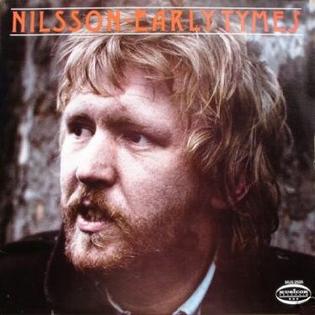
Early Tymes is a compilation album consisting of demos by Harry Nilsson who recorded for Scott Turner in 1962, when he was still a struggling musician, whose regular job was working in a bank. He was reportedly paid $5 per song to sing vocals to Turner's acoustic guitar. The demos were overdubbed by various studio musicians in 1962, and then again were dubbed in 1977 and released on the album Early Tymes in 1977. The demos were then re-dubbed and released in 1994 as Nilsson '62: The Debut Sessions and contain previously unreleased demos. Hollywood Dreamer was released in 2001 without any of the overdubs, and contains the unreleased demos "Oh I Wonder" and "On Time".

Carmen Jones is a 1954 American musical film featuring an all-black cast starring Dorothy Dandridge, Pearl Bailey and Harry Belafonte, produced and directed by Otto Preminger. The screenplay by Harry Kleiner is based on the lyrics and book by Oscar Hammerstein II, from the 1943 stage musical of the same name, set to the music of Georges Bizet's 1875 opera Carmen. The opera was an adaptation of the 1845 Prosper Mérimée novella Carmen by Henri Meilhac and Ludovic Halévy.

Photograph: The Very Best of Ringo Starr is a career-spanning best-of compilation album by Ringo Starr and is the first such album since the releases of 1975's Blast from Your Past and 1989's Starr Struck: Best of Ringo Starr, Vol. 2. The album was released in the UK on 27 August 2007, and in the US on 28 August.
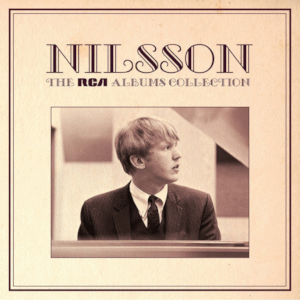
The RCA Albums Collection is a 17-disc compilation album dedicated to American singer-songwriter Harry Nilsson. It was released in July 2013 by Legacy Recordings. The album includes 14 of Nilsson's solo albums from the 1960s and 1970s and three CDs worth of unreleased session recordings.

"Gotta Get Up" is a song written by American singer-songwriter Harry Nilsson and the opening track from his 1971 album Nilsson Schmilsson. It was first released as the B-side to his single "Without You". "Gotta Get Up" is an upbeat pop song with a music hall feeling and lyrics about transitioning from carefree youth to adult responsibility. Nilsson based the lyrics on his experiences working at a bank and on his parents.

















